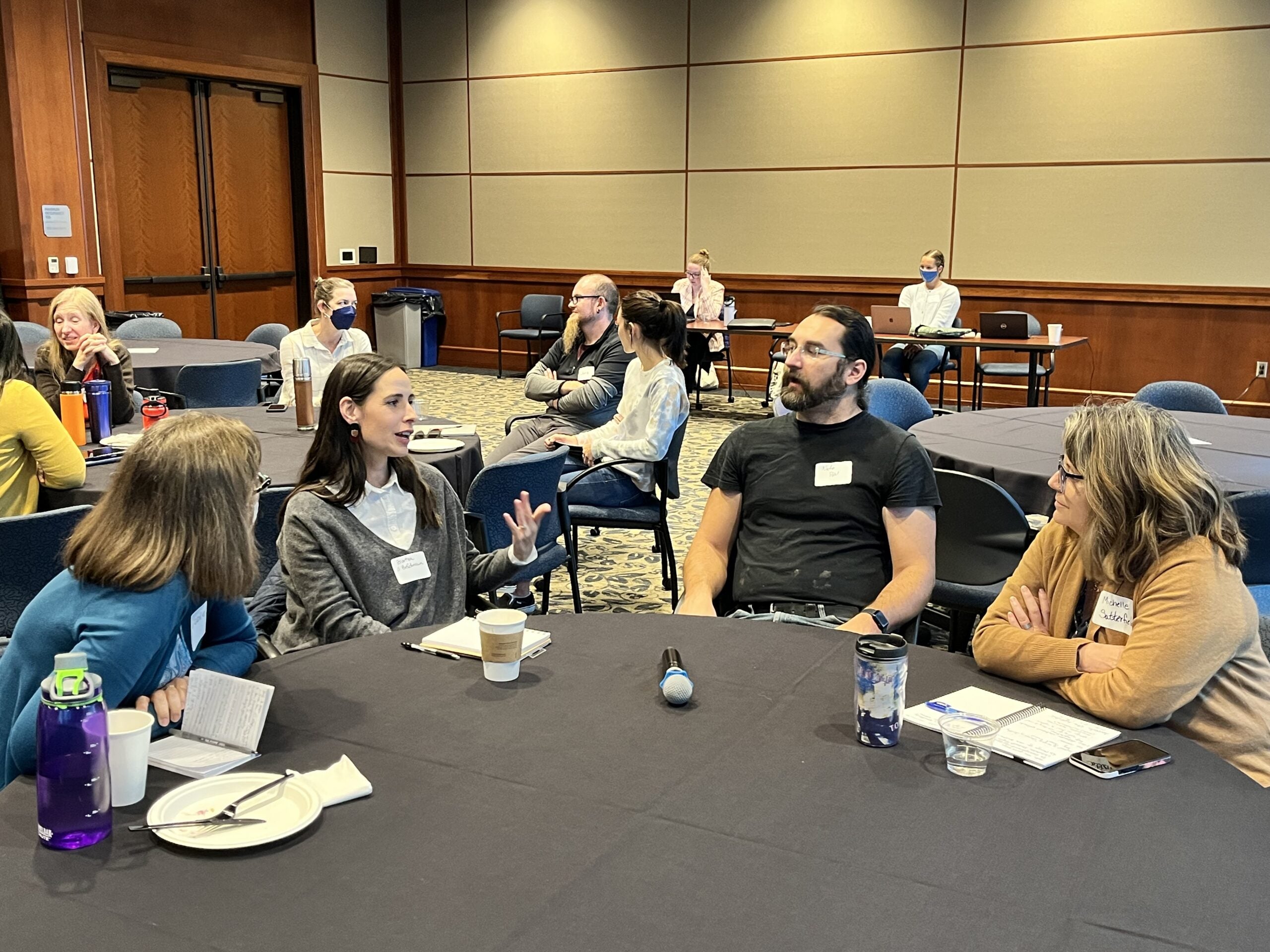
Our courses – whether face-to-face, online, or hybrid – can be relationship-rich environments that enhance learning, motivation, and belonging for all students. This is the call to action made by our recent guest speaker Peter Felten, Assistant Provost for Teaching and Learning at Elon University and author of numerous books on undergraduate education including Relationship-Rich Education: How Human Connections Drive Success in College. In a recent follow up to Felten’s faculty workshop, Boise State faculty shared what they do to support student connections in the classroom, including the following strategies
Use students names
- Learning a lot of names in a short period of time can be difficult. Try to link interesting facts about your students with their names.
- Print out all the photo-ID images and make flashcards of them.
- Use name tents.
- Survey students to ask how they would like to be addressed in the classroom (e.g., pronouns and chosen names).
Provide opportunities for students to connect with you
- Send a video introduction/welcome email at the beginning of the semester.
- Take students to your office! It can lessen the “stress” on going to an unknown place. Don’t have time? Make a video on how to get there.
- The Albertson’s Library offers drop-in room reservations for office hours.
- Validate students’ perspective by participating actively in discussion groups.
- Hold weekly in person/remote “Study in 30” or “Study in 60” sessions so that students may drop in and ask questions.
- Check-in and check-out with students to ask how they are and how the course is going for them.
- Show up early to class and offer time for questions and more casual conversation.
- Send emails to students in recognition of their contributions, noticing their growth, or when they’ve been absent.
- Share about yourself and your journey in college.
Interactive Teaching
- Create opportunities for active discussions.
- Include opportunities to reflect on and to bring academic interests into the classroom.
- Use icebreakers regularly throughout the semester.
- Offer personalized and regular feedback.
- Talk to students about how they have grown during the semester so they know you see them as an evolving person.
- Circulate and interact with students as they are working in class, and ask interactive questions about that work – or their lives.
- Include peer-review activities.
Would you like to share other strategies you use for building a relationship-rich classroom? Or have you tried one of the listed strategies and want to share a teaching story as a result? We would love to hear from you! If you’d like to learn more or talk to a CTL staff member, please complete this consultation request form and we’ll be in touch.